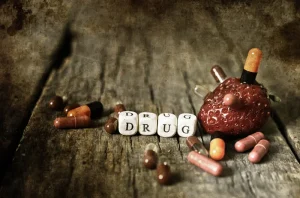Unveiling the Covert Narcissist Alcoholic: Signs to Watch For

Enabling behavior can perpetuate the cycle of alcoholism and narcissism by shielding the alcoholic narcissist from the natural consequences of their actions. It is important for the codependent partner to recognize the unhealthy dynamics at play and seek support for themselves, such as therapy or support groups. This can empower them to establish healthier boundaries and prioritize their own well-being.
How to cope with the challenges of relating with narcissists or addicted people
They may also exhibit a sense of entitlement, demanding unwavering attention and validation. The constant need for validation and admiration can leave their partners feeling emotionally depleted, as their own needs and feelings are often overlooked. Furthermore, alcoholism can contribute to a cycle of self-destructive behavior that reinforces narcissistic tendencies. The individual may engage in reckless behaviors, neglecting responsibilities and relationships in pursuit of their own desires. This self-centered behavior can strain relationships and perpetuate a sense of entitlement and selfishness.

Tramadol Addiction: Recognizing Signs, Risks, and Recovery Options
It found that narcissism was a predictor of alcohol consumption and alcohol-related problems. In fact, some research suggests that alcohol misuse might be more common https://ecosoberhouse.com/ among people who have narcissistic tendencies. A covert narcissist needs to use tactics like this to elevate themselves and maintain power in the interaction.

Exploring the Traits of a Narcissist: Recognizing Signs and Coping Strategies
In this section, we will explore the toxic dynamics involved in relationships with alcoholic narcissists and the development of codependency and enabling behavior. Moreover, alcohol can contribute to the erosion of personal relationships, as narcissistic behavior fueled by alcohol can lead to conflicts, manipulation, and emotional abuse. This toxic dynamic further perpetuates the cycle of alcoholism and narcissism, as the individual may continue to rely on alcohol as a means of self-soothing and self-medication. While alcohol may initially provide a temporary escape, it can also reinforce and amplify narcissistic behavior over time.

A covert narcissist may appear charming on the surface but lack genuine empathy or concern for others. Pay attention to inconsistencies in their behavior, as they often prioritize covert narcissism and alcoholism their own needs above all else, subtly undermining those around them. When dealing with a covert narcissist, watch out for subtle signs that may go unnoticed by others.
Traditional addiction treatment approaches often need to be modified to address the unique challenges posed by narcissistic personality traits. Healing from the aftermath of a covert narcissistic relationship takes time. Remember that healing is a process, and it’s okay to progress at your own pace.

- Individuals who are experiencing these symptoms would benefit from considering a treatment program for alcohol abuse.
- In order to have a diagnosis of NPD, they’ll have to consistently show the relevant symptoms over a period of many years.
- With treatment, those with NPD can live healthy lives with positive relationships.
- While they may not show it outwardly, criticism is especially unbearable for a narcissist.
They can be masters of manipulation, using gaslighting and guilt-tripping to control situations. It’s essential to focus on genuine connections and acts of kindness rather than seeking validation from those who exhibit narcissistic tendencies. In contrast, communal narcissists prioritize communal goals and present themselves as selfless and caring individuals. They may display empathy, albeit as a tool for self-promotion, and seek validation through their perceived contributions to others.
- Being aware of these traits can help empower you, helping you to recognize and better navigate potentially unhealthy relationships and interactions.
- Get the help you need from a therapist near you–a FREE service from Psychology Today.
- The overt narcissist is the one who easily shows self-importance and exaggerates accomplishments while seeking admiration from his audience.
- Someone who’s narcissistic might be self-absorbed and have an inflated sense of self-importance.
- The comorbid psychological distress stemming from both conditions can lead to a tumultuous environment, affecting not only the individual but also those around them.

Being in a relationship with an alcoholic narcissist can be challenging and emotionally draining. Their self-absorbed behavior can make it difficult for them to truly connect with others, leading to superficial relationships that lack depth and meaning. Since the covert narcissist envies those who receive positive recognition, their partner may learn not to share accomplishments at work, compliments from others, or repeat having had a happy experience. At the same time, positive regard or compliments for their domestic or professional accomplishments will likely not be forthcoming from their partner. These behaviors are also seen in people with alcoholism (also known as a severe alcohol use disorder) and drug use or substance use disorders.
In the realm of intimate partner abuse, many abusive partners may fit the description of narcissism. Some types of overt narcissism, such as grandiose or malignant narcissism, are easy to spot. The covert narcissists (also called the vulnerable narcissists), however, have similar qualities to those of the overt types yet act quite differently, making it all the more confusing to identify. Common narcissistic traits of NPD include grandiosity, inflated self-image and self-worth, as well as a lack of empathy. People with covert narcissism share many of these traits and, as a result, may have difficulty developing and maintaining relationships.
Leave a reply
Laisser un commentaire